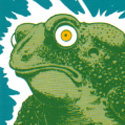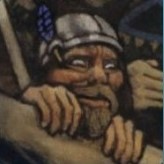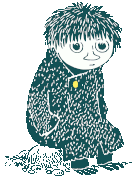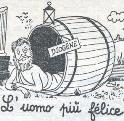|
Mao's snow poem there is actually pretty good! There were certainly worse attempts by leaders of modern-day China to write poetry. First and foremost among them was the Warlord Era ruler Zhang Zongchang whose attempts at writing poetry were more... well, just read it.Zhang Zongchang, "Visiting Mount Tai" posted:From afar, Mount Tai looks blackish,
|
|
|
|

|
| # ? Apr 26, 2024 01:39 |
|
Everything about that one is really funny, from 'blackish' to the literal statement at the end. I wonder if there's some super cryptic meaning in there or it was a case of 'his poetry sucks but I'm not going to tell him'
|
|
|
|
zhang zongchang was a capable general with a talent for violence and extensive links to the White Russians. largely famous for: artistically multidimensional misrule, refusing to let his illiteracy stop him from writing poetry, bragging about his huge dick, and funny nicknames. some favourites: Dogmeat General (could refer to any of three different vices) The Three Don't-Knows (how many concubines and soldiers he had, and how much money he'd printed) Ol' Eighty-Six (measuring his erect penis in Mexican silver dollars) 混蛋诗 你叫我去这样干, 他叫我去那样干。 真是一群大混蛋, 全都混你妈的蛋。 Poem about Bastards You tell me to do this He tells me to do that You're truly one big crowd of bastards All of you can gently caress your filthy mothers
|
|
|
|
smdh you're not even gonna list the vices?
|
|
|
|
yeah that was poor form actually lol. they were: Gluttony and whoring - chow down on a chowchow erryday, for virility; Gambling - playing Chinese dominoes or poker, esp for money, is sometimes called 'eating dog meat'; Classic immortality-chasing, and probably whoring again - there was also a herbal tonic called 'dogmeat' he supposedly smashed through. to quote his last words, no good!
|
|
|
|
Okay, Poem about Bastards I kind of like, lol. I wouldn't have pegged it for a Chinese poem at all though, since it's so direct.
|
|
|
|
lol this almost makes me want to make a thread for dictator poetry, I know both Stalin, Ayatollah Khomeini and others dabbled in that, too
|
|
|
|
the poetry of overlords and leaders is fun for what it reveals or presents of their humanity. from four-star rear end in a top hat Zhang's brusque inversions of form to Li Yu dreaming in his tower as China split into the Five Dynasties and Ten Kingdoms, there's a lot to choose from. Yang Guang was only the second emperor of Sui, but the last one to be more than a puppet or pretender. the storied Tang dynasty would follow Yang's death at the hands of a rebel general by a few short years. he fits ulvir's remit, with his hideous reputation, ironic personal name (a homophone for 'sunshine') and talent for music poetry. because he was a good poet, and a jealous one as well. he had scholar-official Xue Daoheng framed up and sentenced to suicide in a forerunner of the Crow Terrace Poetry Trial. a baffled and distraught Xue was strangled, while Yang asked "Can he still compose, 'From bare rafters fall crumbs of the swallow's nest'?". Xue Daoheng, tr. Victor Cunrui Xiong posted:Nocturnal Song Yang was a deceitful, cruel and oddly fragile person, forcing abortions on his concubines to maintain an austere image he later abandoned, and starting a disastrous war with Goguryeo in revenge for a personal slight. 5D&10K historian Liu Xu wrote of Yang that "the bamboo is exhausted to write his crimes, the water of the East China Sea exhausted to wash his evil". Yang invested immense energy into becoming emperor. it was a position that drew out all his worst qualities, but also his visions of glory and grandeur. during his thirteen years of rule the (in)famous jinshi degree was inaugurated, civil conscripts refounded Luoyang, which would be Wu Zetian's million-man Divine Capital, they dug the Grand Canal which linked the great rivers and allowed Tang's grain and salt and pretty poetry to flow, great festivals of music and culture were launched, using the arts to hook marginal peoples like the Blue-Turks. Yang of Sui, tr. Victor Cunrui Xiong posted:In Jilusai were stationed soldiers with their giant flags, who knows how many people died for Yang's visions, cut down in Korea, starved by imperial greed, buried digging canals? Yang Guang posted:Towards the Plain
|
|
|
|
I love this thread! I wanted to contribute something a little different, but still very moving - at least for me. It's from the Beijing Spring / Democracy Wall movement of 1978-1979. I wish I had an original version, I'm curious how its inner structure/tonality holds up in comparison to the depths of classical Chinese poetry that this thread has taught me. Li Jiahua posted:No, You Did Not Die
|
|
|
|
though i don't have the chinese to hand, i can give you some context for the poem drawing on themes we've seen before. if any of us can dredge up the original i'll try digging into it. premier Zhou Enlai died in January 1976. an era was coming to a close. Mao's health too was failing and he'd follow Zhou later that same year. calling their association complicated and momentous seems like a double understatement. Mao didn't attend Zhou's funeral, complaining that to do so would be seen as a repudiation of the Cultural Revolution. Zhou was a selfless and honourable man who deserved his popularity. in tempering certain destructive or foolish Party currents he'd probably preserved Chinese socialism but had definitely wrecked deep friendships and made powerful enemies, rendering his death politically sensitive. the Cultural Revolution's famous Gang of Four, led by Mao's fourth wife Jiang Qing, who personally despised and politically opposed Zhou, was arrayed against the faction of Zhou's ally, supposed 'capitalist-roader' Deng Xiaoping. the expected outpouring of popular grief for Zhou was - correctly - perceived as a threatening potential flashpoint by the Gang. hence the 'five noes', constraints on public mourning for Zhou: -no memorial activities; -no black armbands; -no wreaths; -no distribution of photographs; -no mourning halls. this stern bit of candle-kicking, launched a week after Zhou's death, was combined with floods of polemic against Deng, and shockingly enough it all went down like a bucket of cold sick. tension built over the next couple of months as people ushered away from mourning a much-loved statesman saw his reputation attacked by some of the most hated politicians in the country. Qīng míng jié (lit. 'pure brightness festival'), the tomb-sweeping day for honouring the dead, fell on the 4th of April that year. the run-up had been characterised by volatile atmospherics in which a couplet of doggerel getting knocked off a wreath was enough to set off student marches and a rash of seething newspaper articles. the festival saw a dizzying number of people converging on Tiananmen Square. maybe two million, filling the square with wreaths and poems, and the odd spicy speech slating Mao's 'Dowager Empress' wife. the Politburo had their memorials removed overnight, without consulting the ailing Mao. the crowd did not take kindly to this the next day, torching police cars and a joint command post. Mao's nephew, Li Shi, brought him the news. Mao declared the disturbance a counterrevolutionary incident, ordered that Deng (sensibly absent from Tiananmen) be placed under investigation, and authorised proportionate use of force to disperse the crowd as a last resort - 'a gentleman uses his words, but also his fists'. force eventually came in a relatively restrained burst that killed no one, but the square did help bury something. the Gang's power was not long for this world. this Tiananmen Incident has been overshadowed in the western mind by 1989's tank boy saga, but history will record it as the more important event. it distilled the struggle between factions within the CPC, won decisively by Deng Xiaoping. by 1978 he'd succeeded in having the gathering offically reappraised as a revolutionary event, and under his patronage the Beijing Foreign Language Institute was publishing a thousand poems the mourners had posted: Wang Juntao posted:In my grief I hear demons shriek; along with Deng's rise to power and the rehabilitation of the Tiananmen Incident came a sort of revival for post station poems. people held discussions in the squares and posted up prose and poetry on walls, reflecting on the past and theorising about paths to the future. a 200m stretch of brick in Xidan, near a pivotal CPC conference of Nov-Dec 1978, especially soaked up this flow of energy, and was dubbed the Xidan Democracy Wall. a poet named Huang Xiang announced the launch of the Dengist and reformist Enlightenment Society via a colossal large-character poster opposite Mao's mauseoleum. from this society his associate Li Jiahua would later splinter off with his outright abolitionist Thaw society. Thaw's position was extremely radical - the vast majority of the Democracy Wall activists were professed Marxist-Leninists agitating for reform and opening up. the Beijing Spring/Democracy Wall Movement is an excellent example of Deng Xiaoping's preternatural ability to manipulate complex hostile systems. the western media waged two wars for him. scouring Xidan for spicy terms like mín zhǔ and rén quán (tr. as 'democracy' and 'human rights', though mín zhǔ is more like 'people's authority' and neither really have the anticommunist connotations they took on in English), they demonstrated Deng's relaxed, indulgent attitude towards disagreements and showcased the stability of the PRC, helping the cause of Chinese diplomatic rapprochement with the USA. meanwhile, Xidan's activists got used to the western hacks crawling all over the place and started addressing posters directly to Jimmy Carter. some abolitionists got gradually more radical while developing a false sense of security from the journalistic presence. it was easy for Deng to denounce the calls for foreign intervention into Chinese affairs and crack down on threatening elements while still benefitting from the strong pro-Deng currents in the movement. masterful really. though he wasn't known as a poet, he certainly understood the power of poetry in China and was able to steer it. Qiao Jifu posted:Hostel Window Thoughts on Qingming, to the tune of Cutting the Cassia Tree
|
|
|
|
gently caress, I love this thread!!! Can you recommend a good historical book about the Chinese revolution? I recently read The Good Earth which had references to the revolution in the background but was quite distant from it and I'm currently reading Trotsky's the Revolution Betrayed, and would love just a deep dive on modern Chinese history, from like 1900 to current day, if such a thing exists.
|
|
|
|
the trouble with english histories on 20th C china is they rarely get published unless their version of the revolution is an unspeakable human catastrophe orchestrated by slavering monsters. so we get books called 'The Tragedy of Liberation' positing that Mao invented the concept of landlords so that he could deliberately starve more people, for lols. any online exceptions you'll find to this rule tend to overcorrect for it and spend their time rehabilitating Mao's '30% mistakes'. that's not to say you can't learn this stuff in english, but you kinda need a few different sources and a critical eye. a fun exercise for the reader is spotting the contractually obligated red-bashing and weird author hobby-horses. there are some options that are less heavy-handed or have some unique inflection: Mao's China and After: A History of the People's Republic by Maurice Meisner this book is easy to find online and doesn't assume any prior knowledge. it's about 600 pages and still doesn't have space to dwell on any one topic for long, but gives you a pretty good idea of everything from the May 30th Movement to Deng Xiaoping Theory. Origins of the Chinese Revolution, 1915-1949 by Lucien Bianco(, tr. Muriel Bell) very succinct and readable, a bit of a modern classic. also consider the same author's Peasants without the Party: Grassroots Movements in Twentieth Century China The Long March 1934-35: the rise of Mao and the beginning of modern China by Benjamin Lai and Adam Hook something a bit different. a great little illustrated Osprey Campaign book covering one of the craziest stories of the 20th century, good stuff if you're interested in the military side of the PRC's origin story or have fond childhood memories of homoerotic illustrations of barbarians in classical antiquity Mao Zedong and China in the Twentieth-Century World: A Concise History by Rebecca E. Karl bit of a love it or hate it deal this, it's quite focused on airy psychosocial analysis and is a very...Harvard gender studies view of modern China, though interesting in its own way A New Literary History of Modern China ed. David Der-wei Wang this is a good option if you're more interested in the literary side of things, and you'll end up learning other stuff by accident along the way
|
|
|
|
I'm a little hesitant to recommend it because it's mostly dealing with the Cultural Revolution with a little bit afterwards, plus a lot of the authors' primary sources are people who left the country and went to Taiwan after the events depicted, but I always liked Chen Village: Revolution to Globalization by Anita Chan, Richard Madsen, Jonathan Unger, which used the example of one (renamed) village and the foibles of its local personalities as a microcosm for changes that happened in rural parts of country in the latter half of the 20th century.
|
|
|
|
been reading some contemporary poetry for a change. in the west Yin Lichuan is perhaps known more for directing movies than for pioneering a style of poetry. she was one of the founders of the brief but intense Lower Body literary movement, a visceral, vernacular successor to (and rejection of) the Misty poetry school. though the Lower Bodies were sometimes castigated as anti-intellectual trolls, misery pornographers or just plain pornographers, some of their poems demonstrate real respect for their medium and its history. the chains of Du Fu or Su Shi are gone, but you can still catch their iron echoes here and there. all of these poems are by Yin Lichuan and translated by Fiona Sze-Lorrain. there are some oddities of translation but i've left them in, other than a tiny clarifying edit. for the first one i've given the original Chinese with pinyin and literal translations, so you can get a sense of the sound and tone patterns etc. if anyone wants either of the others done up like that let me know. Method Laozi wants to return to savage times Tang men to the Spring and Autumn Period Qing men to the Great Tang era I just want to return to the era before aeroplanes to those who walk ahead you go take a plane to those who once walked we ride horses in fact even horses need not be ridden 方式 老子想回到蛮荒 唐人想回到春秋 清人想回到大唐 我只想回到 飞机发明之前 向前走的人们 你们坐飞机去 向从前走的人们 我们骑马 其实连马也不用骑 fāng shì lǎo zǐ xiǎng huí dào mán huāng táng rén xiǎng huí dào chūn qiū qīng rén xiǎng huí dào dà táng wǒ zhǐ xiǎng huí dào fēi jī fā míng zhī qián xiàng qián zǒu de rén men nǐ men zuò fēi jī qù xiàng cóng qián zǒu de rén men wǒ men qí mǎ qí shí lián mǎ yě bù yòng qí 'way|style|pattern' 'Laozi yearn to return to barbarian land' 'Tang people yearn to return to Spring and Autumn' 'Qing people yearn to return to great Tang' 'I only yearn to return' 'aeroplane invention beforehand' 'forward running people' 'you{plural} catch a plane and go|pass away' 'turn towards past time people' 'we ride a horse' 'in fact even horses too need not be ridden' Xiaobai (Little White) Had a Surgery after castration (difficult figure to translate - neutering would be more accurate in this context but it has a strong connotation re: eunuchs -Shogi) Xiaobai is covered in white gauze yet to recover from anaesthesia I carry the unconscious Xiaobai and take the overpass she knows nothing if I let loose my grip she would drop off the bridge and to her death she complains of nothing only an old woman begging on the overpass back arched and dozing off under the overpass a clamour of cars and voices recalling that year God carried the unconscious us castrated or uncastrated under the weather we were overly frail He wasn't that mighty either like me at this time with vast power but no concrete strength evil thoughts gone in a flash yet waiting for us to come round to view God's impotency and weakness as love and forgiveness Spring Drought spring days feel a little salty dry sun, a cold and hard ball of white wind lifts our house up to mid-air, a tree of peach blossom slanting by a bazaar's stone steps like a half-stretch of pink sand no rain, no green no murmur... thin growing voices a county truck passes by in a thunder loaded with black petroleum toward a plain of blooming spring flowers this is just hypothetical as for us, still suspended mid-air through the city, sitting in a red icy theatre listening to "The Peach Blossom Fan", the tune of spring woe still so thick and soft, but for whom
|
|
|
|
I just read 19 Ways of Looking at Wang Wei which I got for Christmas thanks to this thread! It was a good read and helpful to understand the nuances that go into translation. The post script sections about the crazy Furious Professor were also super hilarious and made the book even more of a pro click for anybody this thread appeals to.
|
|
|
|

|
| # ? Apr 26, 2024 01:39 |
|
i gotta get that book meaning to check out a movie that made some waves in China last year as well, the donghua Chang'an (aka Thirty Thousand Miles from Chang'an) https://www.youtube.com/watch?v=Bdt6vz6VtbQ set in the Tang dynasty around the An Lushan rebellion, focusing on Li Bai and several of his contemporaries and featuring about 50 poems from the era. you can prob recognise references to a couple we've seen in this thread even without english subs
|
|
|












